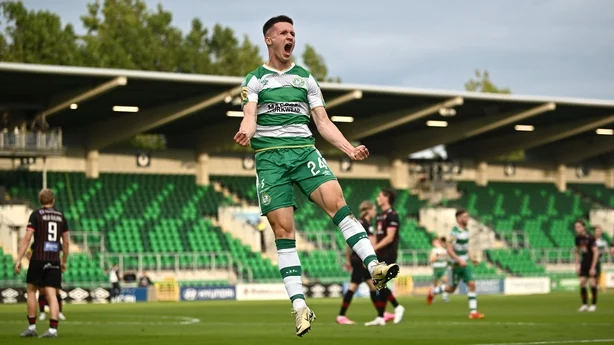In recent months the conversation around the League of Ireland clubs potentially breaking away from the Football Association of Ireland (FAI) to operate independently has gained traction.
This isn't an unusual idea; most European leagues are detached from their associations and have their own administrative structures to handle day-to-day operations and commercial activities.
As always, the central issue with an independent league is funding, and the need for a sustainable financial model that supports the league, its clubs, and academies.
Previously, I discussed potential revenue sources for the League of Ireland, emphasising the necessity of public funding for our academies.
However, a league operating independently of the FAI would likely need substantial private investment, in my opinion, most probably from the United States.
The FAI must come to terms with the fact that the league could perform better commercially if it were operating independently.
However, this does not mean the FAI should lose complete control.
The FAI would remain as the governing body for the league, however a new third party entity would be created as part of a potential re-launch.
READ EOIN DOYLE'S SERIES ON FUNDING OF FOOTBALL
- Euro 2024 reminds us future for Ireland could be bleak, but it doesn't have to be
- Two ways to fund Irish football's future generations
- Betting levy and welfare fund a good wager for football
Instead, they could lease the league to potential investors with protective clauses for the clubs and the league itself.
These clauses could include targets for revenue and penalties for failing to meet agreements that don't affiliate with our clubs' needs.
Embracing an independent model with strategic private investment could be the key to unlocking the league's full potential.
Putting a case together hinges on the FAI’s ability to sell the concept to potential investors and convince clubs of its benefits.
The best way to keep all parties happy with this potential new structure is for the FAI to take the lead on this and go chase suitable investors on behalf of the league, or the clubs could go independently themselves – which is currently being rumoured, with one club having a number of talks.
So, how could this look?
Firstly, the clubs need to be on board before any potential investment is considered so a model that’s favourable is a must.
Drawing inspiration from the NFL model, where commercial revenue is split evenly among clubs while allowing them to retain locally generated income, could be effective.
For a 10-team League of Ireland, revenue could be divided 11 ways, with the league maintaining an equal share.

This model ensures that both the league and the clubs benefit from commercial success, keeping everything transparent while providing a stable foundation for growth and a return on investment.
Outsourcing the league for a period means the FAI could use any revenue earned to support academies, grassroots football, or reduce debt.
To attract investors, the FAI must highlight the league’s potential and current deficiencies.
Our inadequate infrastructure, which the Large Scale Sport Infrastructure Fund (LSSIF) aims to improve, and the lack of a TV deal are critical issues.
A suitable stateside investor could help secure a TV deal, particularly if games are initially played in our current upgraded venues, such as Tallaght and Aviva Stadiums.
Both of those issues are positives for an investor. Growth is possible, we are starting from scratch here and the rewards could be significant with the trajectory the league is currently on.
Given the low-cost base of the league and the limited investment the FAI makes into it, this could prove to be attractive to investors.
The opportunity to buy a football club is always available but why not buy a league?
The league’s lack of public funding could also be addressed by showcasing the potential for international attention and success under new management.
Ireland has a framework for attracting foreign investment, with entities like the Industrial Development Authority (IDA) and Enterprise Ireland excelling in this area.
Leveraging this expertise could help bring in the necessary funds.
The league is on an upward trajectory and any potential investor would realise that possibilities are monumental – shaping it for future success is easier when it’s a start from scratch.
I was fortunate to be in Tallaght to witness Shamrock Rovers' win against Vikingur Reykjavik on Tuesday, an incredible night full of drama.
However, an uneasy feeling hung around when Nikolaj Hansen stood over that penalty in the 95th minute with the potential financial implications for the club.
It was a great night demonstrating the league's potential, but it also highlighted the risks of relying on one-off European ties for financial stability.
By learning from successful models like the NFL and leveraging Ireland’s investment-friendly environment, I believe the League of Ireland alongside the FAI can secure a brighter future for Irish football.
The discussion around the League of Ireland’s independence is more than just theory.
It aligns with global trends where football leagues seek greater autonomy to enhance commercial performance and is grounded in practice across Europe.
The FAI’s role will be crucial in managing any transition, while balancing investor interests with the league’s long-term health it could also free up resources to aid other important parts of the game in the country.
Disclaimer: The copyright of this article belongs to the original author. Reposting this article is solely for the purpose of information dissemination and does not constitute any investment advice. If there is any infringement, please contact us immediately. We will make corrections or deletions as necessary. Thank you.






